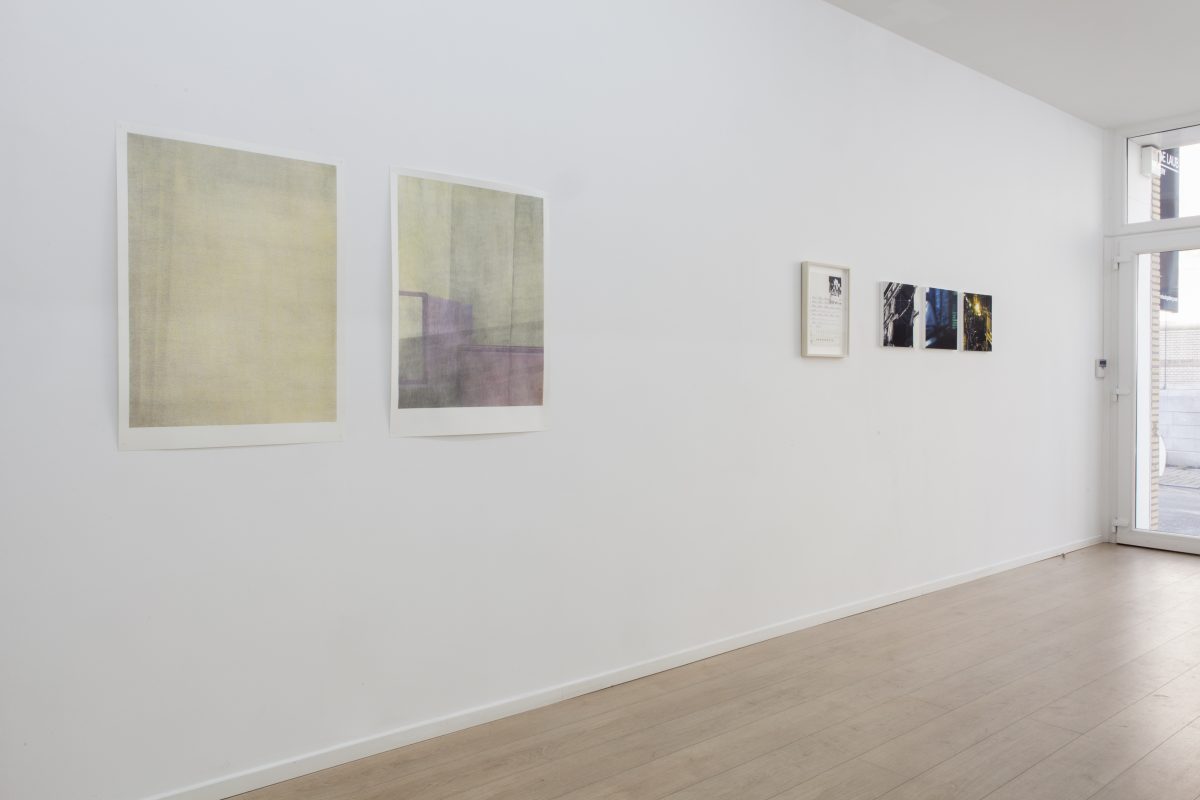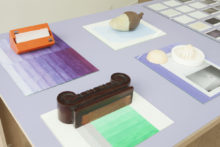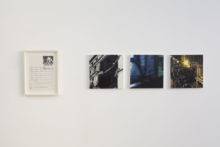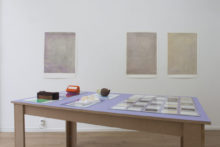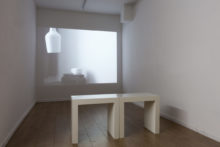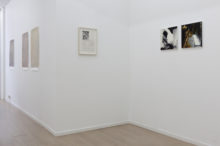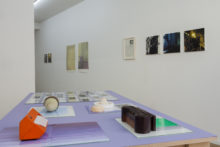How to express what is seen and transmit it through the realization of the image itself? It is in the ability to conjure up micro events in the margins of the dominant writing – as a means to induct a subjective reading – that the works of Eirene Efstathiou and Eduardo Matos meet.
Slowing down and taking the time to look around oneself and see what is happening. Eduardo Matos’ installation “Lamp’s Explanation” incites this introspection. This research emerged in the solitude of his Brussels apartment in a spirit of resistance towards the outside world. That which he tries to escape nonetheless permeates his everyday life. The play of city lights is projected onto the white walls of his studio. Eduardo Matos draws the way he paints. He covers the papers with a thin layering of colors, much like the glazes of the masters of the fifteenth century. It is the temperature and brightness of these, often artificial, lights, that he tries to capture in these two new series of drawings. Sometimes the details of his apartment are included in these attempts that connect interior and exterior. In the series of drawings “No. 3 Map trace” (2016), Eirene Efstathiou, for her part, shows an interest in the protests of July 1965 that occurred prior to the Greek coup. On the pages of an old teaching atlas colored in by children, the artist juxtaposes photographs from archives and post-war statistical annotations that describe the material losses under the Occupation. This process, in which documentary values intersect with their subjective interpretation, draws attention to the way historical events and data are manipulated and misrepresented by the media to serve a contemporary political narrative. A similar approach is used in her paintings.
By juxtaposing Greek historical and media images from December 1944 and 2008, Eirene Efstathiou reflects on the politically charged events of these two Decembers. The result is a semantic blur caused by a loss of context that would allow an interpretation of facts. These representations leave room for visions of ruins and absence. Alongside his drawings, Eduardo Matos presents a video that replays a process conceived in the framework of the work “Lamp Explanation”. A loop shows the empty space of his apartment where a choreography of anonymous objects unfolds. They appear and disappear according to the cyclical movement of the camera. Absence is a key concept in the intimate observations the artist makes. She calls into question that which is seen, that which should be seen, the way we understand these images and the world around us.
‘Regarding the continuity of disrupted images’ questions the way in which images circulate, the lack of references relating to them, but also the perception we have of them. In the face of the uncertainty produced by the superabundance of information, should we not slow down and take the time to question these unanimous visions? The gaze of Eirene Efstathiou, always on the fringe of the dominant discourse, confronts the impossibility of a representation of violence and chaos. Eduardo Matos, on the other hand, resists the excesses of society through an introspective process. Whether addressing a specific problem or the truncated reports of public demonstrations, the questions raised in the works of Eirene Efstathiou and Eduardo Matos transcend the anecdote and speak of a common history.
